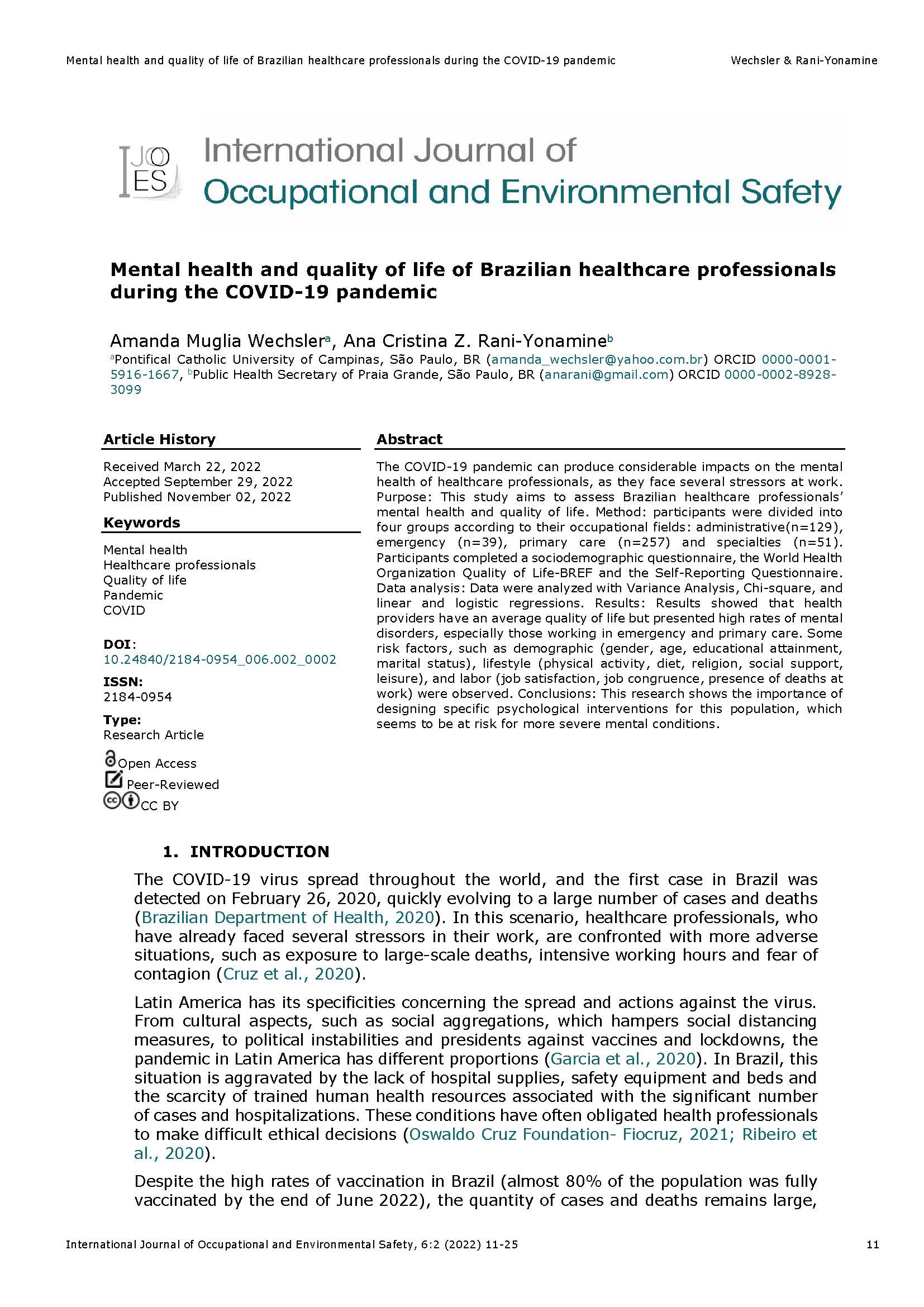Mental health and quality of life of Brazilian healthcare professionals during the COVID-19 pandemic
Main Article Content
Abstract
The COVID-19 pandemic can produce considerable impacts on the mental health of healthcare professionals, as they face several stressors at work. Purpose: This study aims to assess Brazilian healthcare professionals’ mental health and quality of life. Method: participants were divided into four groups according to their occupational fields: administrative(n=129), emergency (n=39), primary care (n=257) and specialties (n=51). Participants completed a sociodemographic questionnaire, the World Health Organization Quality of Life-BREF and the Self-Reporting Questionnaire. Data analysis: Data were analyzed with Variance Analysis, Chi-square, and linear and logistic regressions. Results: Results showed that health providers have an average quality of life but presented high rates of mental disorders, especially those working in emergency and primary care. Some risk factors, such as demographic (gender, age, educational attainment, marital status), lifestyle (physical activity, diet, religion, social support, leisure), and labor (job satisfaction, job congruence, presence of deaths at work) were observed. Conclusions: This research shows the importance of designing specific psychological interventions for this population, which seems to be at risk for more severe mental conditions.
Article Details

This work is licensed under a Creative Commons Attribution 4.0 International License.

